Group therapy is an integral part of addiction treatment programs. It is an evidence-based treatment approach for addiction and co-occurring mental health conditions. While individual counseling can help you address personal concerns, group therapy can provide a supportive and therapeutic environment to help individuals navigate the challenges of recovery. The stages of group therapy help create a safe, non-judgmental atmosphere that encourages healing.
Athens Recovery offers group therapy in Athens, GA, that can help clients on their path to recovery. Call 844.959.4998 today to get started.
How Does Group Therapy Support Recovery?
Group therapy is a form of psychotherapy where individuals come together to share their experiences, emotions, and challenges in a confidential and supportive environment. The goal of group therapy is to help individuals improve their social skills, develop a sense of belonging, and provide support and feedback while working towards common goals.
Group therapy can help individuals who struggle with addiction and co-occurring mental health conditions by providing a safe space to process their thoughts, feelings, and behaviors. In a group setting, clients can learn from one another, share coping strategies, and develop a sense of empathy and understanding towards fellow peers. Group therapy can also address specific issues related to addiction, such as codependency, trauma, and relationship issues, among others.
The Stages of Group Therapy
The stages of group therapy include:
- Initial introductions – During the early stages of group therapy, clients will have the opportunity to introduce themselves and get to know their fellow peers. The therapist will set group norms, review confidentiality, and discuss the goals of the group. The first few sessions can be anxiety-provoking for some clients, but with the support of the therapist and peers, it can be a meaningful experience.
- Orientation and goal setting – During this stage, clients will work with the therapist to identify their specific goals for therapy. The group will discuss different approaches to achieve these goals, and the therapist will provide specific feedback and roadmap to reach the desired outcomes.
- Working and processing – This stage is where the real work begins. Clients will engage in discussions and activities that promote self-awareness and insight while receiving support from their peers. The therapist will guide the group to process and explore challenging topics related to addiction and co-occurring mental health conditions. This stage can be challenging but also transformative in promoting long-term recovery.
- Termination and reflection – As the group therapy nears its end, clients will reflect on their progress and celebrate their achievements. Termination can be an emotional process, but it is also an opportunity to share gratitude, say goodbye, and make plans for continued support after group therapy.
Every step of group therapy is important in contributing to the overall recovery process. By creating a safe and supportive environment, clients can explore their emotions, learn from one another, and develop the skills and strategies necessary for successful long-term recovery.
What to Expect from Group Therapy
Group therapy can be a transformative experience for clients struggling with addiction and co-occurring mental health conditions. However, it can also be challenging to open up and share personal details with peers. It is essential to go into group therapy with an open mind and a willingness to participate fully. Here are some things to expect from group therapy:
- Confidentiality – Group therapy is a safe and confidential space where clients can share their thoughts, feelings, and experiences without fear of judgment or persecution.
- Active participation – Group therapy requires active participation from all members to maximize the therapeutic benefits. Clients are encouraged to share their thoughts and receive feedback from peers.
- Therapeutic support – Group therapy is facilitated by a trained and licensed therapist who will provide guidance, feedback, and support as needed.
Your treatment team will support you every step of the way.
Call Athens Recovery Today
Group therapy is a vital component of the addiction and mental health treatment services offered by Athens Recovery. By understanding the stages of group therapy, potential clients can prepare and engage in the therapeutic process more fully. Group therapy provides a supportive and transformative environment to address addiction and mental health concerns while providing clients with the tools and support they need to promote long-term recovery. If you or a loved one is struggling with addiction or co-occurring mental health conditions, reach out to Athens Recovery today at 844.959.4998 or contact us online to learn more about our group therapy programs.

